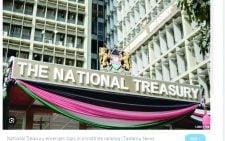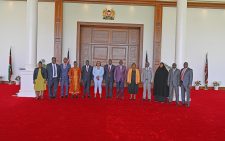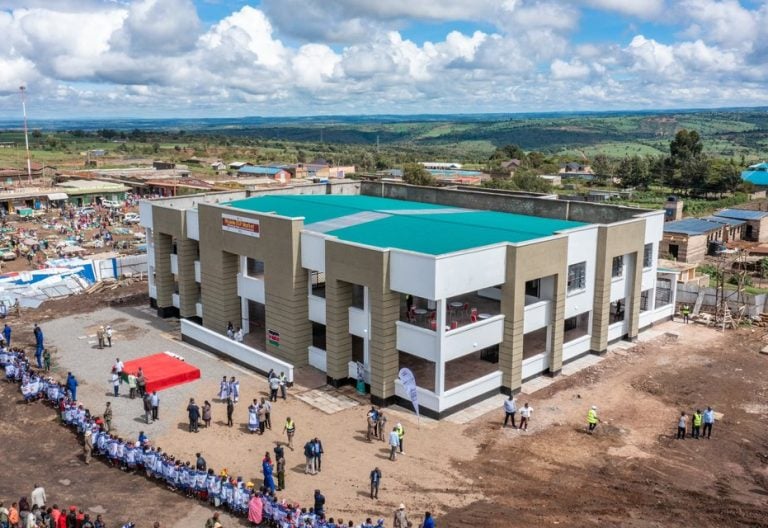Mbadi seeks VAT cut in new bid to up Ruto revenue

The National Treasury plans to ¬reduce Value Added Tax (VAT) and other taxes through amendments to the Tax Act in new measures to raise revenue for the William Ruto administration.
Treasury Cabinet Secretary John Mbadi disclosed yesterday that his ministry will in the medium-term budget reduce VAT from 16% to 14%.
Also to be affected will be the corporate tax and other taxes, he said, without elaborating.
The tax is expected to boost manufacturers and other investors who are taxed at a rate of 30%, while non-resident companies are taxed at a rate of 37.5%.
It is expected that following the reduction of the VAT rate, the price of items and services will ultimately go down. The reduction is aimed at reducing the cost of living since it will increase savings for the consumers.
The National Treasury Cabinet Secretary by law has powers to vary the VAT rate either upwards or downwards by a rate not exceeding 25%.
Final consumer
VAT is a consumption tax since it is ultimately borne by the final consumer and is charged as a percentage of the price. It is a tax on personal spending and not a charge on businesses.
Speaking while launching the FY 2025/26 Budget Preparation Process yesterday, the CS said the government will not support any additional expenditures, but will instead focus on enhancing efficiency, accountability, and prudent use of available resources.
Mbadi further disclosed that there are plans to implement a new financial management system with an emphasis on transparency in the procurement process.
“Agriculture will be prioritized to support manufacturing and economic growth, with a focus on SMEs and housing. Despite operating under fiscal constraints, the government will work to ensure growth and broaden opportunities,” Mbadi said.
According to Mbadi, the government in its fourth medium-term plan, will focus on transforming the Agricultural Sector, (ii) Micro, Small and Medium Enterprise (MSME) Economy, Housing and Settlement, Healthcare and the Digital Superhighway.
High cost of living
It is not the first time that the government is reducing VAT to mitigate the high cost of living. In 2020, former President Uhuru Kenyatta reduced VAT from 16 to 14 per cent to alleviate the effects of COVID-19.
Reducing the VAT rate decreases the retail price of goods and services, although the expected price decrease is not directly proportional to the VAT rate reduction. Reducing the VAT rate slightly increases the consumption of the affected goods.
At the same time, reducing the VAT rate decreases revenues in the government budget. Accordingly, the consumer’s demand for this item will increase.
Consumers often switch their demand towards the goods with a lower tax rate because the price is lower than before.
Mbadi said that the implementation of the current budget has commenced and that proposals will soon be forwarded to Parliament for consideration.
“However, it is important to note that following the withdrawal of the 2024 Finance Bill, the Government has had to forego additional revenue measures. We therefore implemented measures aimed at aligning our priorities with the available resources,” Mbadi said.
He told accounting officers last week that the National Treasury forecasts a budget deficit of Sh767 billion in the year through to June 2025.
“The government is operating under a constrained fiscal environment, we are barely managing the 2024-2025 budget,” said Mbadi.
Treasury Principal Secretary Chris Kiptoo emphasized the importance of following the Budget Review and Outlook Paper (BROP), sector budgets, and revenue bills, including the review of county allocations.
He underlined the need for a zero-based budgeting approach, using proper budget costing tools, and announced that budget review meetings would be held to ensure adherence.
After the rejection of the Finance Bill, of 2023, President William Ruto said the country would have to borrow more to keep the government running.
Ruto said dropping the bill had set the country back two years, as he explained the difficulty of being unable to raise extra taxes while facing a huge debt burden.
He said this meant Kenya would have to borrow one trillion shillings just to enable the government to run its operations.
But he also said he was considering cuts in spending across government, including in his own office, as well as reducing allocations to the judiciary and the county governments.
The extra taxes were supposed to raise about 350bn Kenyan shillings, while about Sh600bn was going to be borrowed.
He observed that the proposed tax measures were part of efforts to cut the debt burden of over Sh10.3 billion.
“I have been working very hard to pull Kenya out of a debt trap… It is easy for us, as a country, to say: ‘Let us reject the finance bill.’ That is fine. And I have graciously said we will drop the finance bill, but it will have huge consequences,” Ruto told a press conference.
He warned that the rejection of the budget would affect the employment of 46,000 junior secondary school teachers who have been on temporary contracts, as well as healthcare provision.
The Head of State said the government would be unable to support dairy, sugarcane and coffee farmers, including by paying off debts owed by their factories and cooperative societies as had been planned.
He however said he was considering the issues that had been raised by those who opposed the finance bill, such as cutting spending by his office and scrapping budgets for the First Lady and the deputy president’s spouse.













